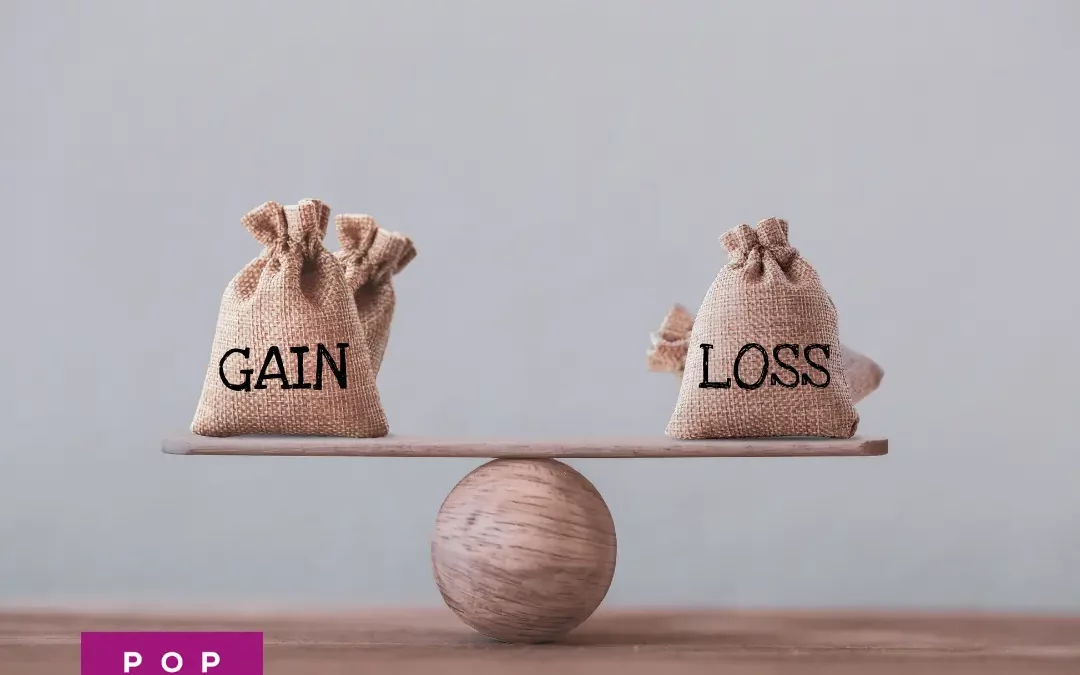Learning your neurotype can be an enlightening and fun experience. However, having assessed over 500 people to determine their neurological profile, there is another common response that I see. Often times, the assessment is treated like a grade. You either feel like you passed or failed, depending on your neurotype.
The truth is that each neurotype presents certain challenges and also comes with some advantages. There is no hierarchy here.
Being a type 1A does not make you better than a type 3. Being a type 2B does not make you inferior to a type 1B.
There are strengths and weaknesses that we’ll discuss for each type and you’ll see that context is important!
For example, when it comes to organization and planning a type 3 might have an advantage over a type 1A, but when it comes to performing under pressure, the type 1A might have the advantage in that scenario.
Also, remember that your dominant profile is only part of the equation! We must always remember that our experience, upbringing, environment, and learned behaviors will play a key role in how we handle certain situations.
Utilizing your neurotype to your advantage
The power of knowing your own neurotype is in the self-awareness that is created through understanding your brain chemistry and personality type.
Having that knowledge allows you to play to your strengths and improve upon your weaknesses. You’re able to modify your behavior in certain situations to become a more well-rounded person.
I’ll give you a personal example. I’m a type 2A and part of our personality is that we have serious FOMO. We hate to miss out on anything, and it doesn’t even have to be something we really want to do!
I have been that way my whole life. I’m not the biggest fan of golf, but if a group of friends were going golfing, all of a sudden I jump at the opportunity like it’s my favorite thing in the world!
It was something that I never realized about myself until I discovered my neurotype and understood the way my brain is wired. The downfall with having FOMO is it can put you in a position where you sacrifice meaningful things for stuff that’s less important just for the sake of not missing out.
It’s not exactly ideal for protecting your energy. Creating that awareness has allowed me to modify my behavior in situations where I know I’m reacting based purely on fear of missing out.
I can take a step back and look objectively about whether I really want to do that activity or not. It’s helped me say no more often and prioritize things that are meaningful in my life.
The process of gaining more self-awareness through understanding your personality profile, along with your upbringing and experience, can improve every area of your life.
Now let’s discuss some of the common strengths and weaknesses for each profile.
Strengths and weaknesses of each neurotype
Type 1A
When it comes to being a natural leader, the type 1A is typically the best candidate. Being extroverted and competitive has its advantages.
Type 1A’s also don’t care what others think of them which can be a positive in the right context. For example, we all know the expression “comparison is the thief of joy.” It’s absolutely accurate and more prevalent today than ever before.
In our social media world, we are subjected to a carefully curated depiction of others and often compare ourselves to an unrealistic standard.
That can lead to insecurities, negative self-talk, low esteem, etc. Type 1A’s have the advantage of not being prone to comparison. They are who they are and if you don’t like it, too bad!
It can also be a perceived negative in certain situations. That type of attitude can be off-putting to some and sometimes is taken to the extreme of being arrogant or braggadocious. It’s typical for other people to assume that type 1A’s lack empathy or compassion, whether they do or not.
For type 1A’s, having high levels of serotonin contributes to their ability to perform extremely well under pressure. Remember that serotonin helps calm the brain down and in a pressure situation, you want to be amped, but not overly amped. You want to be calm, but not too calm.
Their neurotransmitter balance plays very well to performing better on game day than they do in practice. When the stakes are higher, type 1A’s are at their best.
The competitive nature of a type 1A also presents certain challenges. They often overlook the importance of recovery and can turn any situation into a competition. When it comes to training, they have a hard time dialing back intensity.
Type 1A’s will often seek out arguments or disputes, even if you’re trying to agree with what they’re saying! They need to be right. Of all the Neurotype’s, type 1A’s are the most likely to get into a bar fight.
Since they have a hard time with authority, they can get themselves into trouble pretty easily. Whether it’s not listening to a teacher or coach, talking back to a parent, or getting into disagreements with a boss, the type 1A certainly doesn’t care about “status.”
Being highly sensitive to dopamine and exhibiting thrill-seeking behaviors makes type 1A’s the most prone to addiction. That can be in the form of exercise, gambling, drugs, porn, extreme sports, etc.
They are also the most likely to have an affair. Because they are competitive and don’t like “rules” they can fall into the trap of exploration outside of their relationship.
Type 1A’s are extremely hard workers, which can be a great attribute, but it can also lead to burning the candle at both ends.
Knowing your tendencies makes the process of personal growth more effective.
Type 1B’s
Most people assume that the type 1B is the “best” neurotype based solely on the fact that they’re naturally athletic and can learn new skills easily. This is true, but there are always pros and cons that are important to be aware of.
A definite strength of type 1B’s is their ability to lead by example. They aren’t the vocal leaders like a type 1A, but they are still extroverted and will let their skills do their talking for them.
They also have the advantage of being less likely to fall into the comparison trap because they are comfortable with who they are. Type 1B’s will be considerate of the opinion of others but they often don’t let it impact their decisions.
When it comes to multitasking, the type 1B’s thrive because of their high levels of acetylcholine. Fun fact – multitasking actually isn’t a real thing that we can do as humans. Our brains can only focus on one thing at a time. Yes, it’s just semantics, but acetylcholine doesn’t enhance our ability to multitask. It actually enhances our ability to shift our attention rapidly between tasks so it gives the appearance of multitasking.
Acetylcholine also aids in our motor learning ability and memory so type 1B’s can learn new skills very easily.
They have high levels of GABA, and high dopamine sensitivity, which helps them perform very well under pressure.
While there are plenty of strengths when it comes to the skill set that type 1B’s possess due to their neurotransmitter balance, there are also plenty of challenges.
They need constant brain stimulation so they get bored very easily and are the most impatient of all the neurotypes. Being impatient in certain situations isn’t necessarily a bad thing, but when it comes to delayed gratification or results happening over a slow and steady process, type 1B’s have a hard time being patient through that process.
Being able to multitask (or switch rapidly back and forth between tasks) can be a positive. It can also present a challenge because type 1B’s are prone to taking on too much at once. They trust in their own abilities so they are likely to just do it themselves, even if that means they’re being pulled in a million different directions.
That can lead to them having no time for themselves or accumulating too much stress in their lives. The advantage is that type 1B’s are resilient and can handle a lot of stress, but every person has their limit.
Having high levels of GABA allows them to recover effectively, but they are typically either on or off. Think of GABA like the emergency brake in your car and serotonin is like the brake pedal. Serotonin can modulate recovery based on how amped up you are while GABA is like the hard stop.
As a result, type 1B’s will seem almost lazy at rest and then will explode in a moment and then shut down immediately after. Think of a sprinter before a race. They are very relaxed and chill, and then they explode off the block for a short burst. After the race, they will look like nothing happened.
That can be a positive when it comes to performance, but you’ll also see this type of behavior exhibited in their everyday lives.
A 1B neurotype will seem totally calm one minute, and then will explode in an argument and say some nasty words. A few minutes later, they’ll act like nothing happened. They aren’t ignoring what they did, it’s just how their brains are wired.
For someone in a relationship with a type 1B, that can be a problematic way of communicating. Another common issue in their social lives is the need for mental stimulation. A type 1B can be looking at their phone, having a conversation, and listening to music all at the same time. Even though they can retain the information, to the person they’re communicating with, it can come across as rude, even if that’s not their intent.
Even their natural athletic abilities can be a weakness in a certain context. We often grow and learn most from our struggles and failures. That’s not to say that type 1B’s don’t struggle or fail, but they pick things up easily.
As a result, they may not be the hardest worker when it comes to their job or their sport. This is a potential issue and certainly isn’t always the case. However, we tend to see it a lot in professional sports with diva-like wide receivers in the NFL or Allen Iverson “talkin’ bout practice.”
Of course, when it’s game time, they’re amazingly talented. When they’re on, they’re ON. Due to the high levels of GABA, when they’re off, it seems like they don’t care, even though that’s not always the case.
Once again, it’s self-awareness that will allow for a type 1B to assess and modify their behaviors to become the best versions of themselves!
Type 2A
Type 2A’s are the chameleons of the neurotyping world because of their ability to blend into any situation or crowd. They are great at modifying their behavior to get the approval and admiration of others.
Type 2A’s have low levels of baseline adrenaline but a very well balanced profile of all the other neurotransmitters. That contributes to their ability to take on pretty much any personality type.
When it comes to training, the type 2A’s can do well at any modality. You typically won’t see them as the star athlete or elite performer but they can do very well at any sport.
Their natural gift is in reading people which makes them some of the best coaches and teachers. They have the ability to adjust their coaching style or the way they communicate with others to be relatable and easy to understand.
Type 2A’s do well in social situations with small groups of people due to their ability to modify their behavior to fit in. Some people view that as fake or inauthentic but it’s just a survival mechanism because they are potentiated by getting the approval of others.
When neurotype 2A’s find something they are interested in, they go all in on that subject. They want to learn every single thing about it until they feel like they’ve mastered it and then they’ll move on to the next thing. Sometimes that can come across as obsessive and in other situations, it can seem flakey. They’ll bounce around to different interests once they feel like they’ve maxed out what they can achieve from that one thing.
This is also one of their weaknesses. Type 2A’s are typically program hoppers who always want to try the next best thing. They get bored easily and thrive on variety. It’s common for a neurotype 2A to beat themselves up for not being able to stick to a plan.
Type 2A’s are very much people pleasers. They do well in a mentor/mentee relationship because they want nothing more than to get the admiration of their mentor. However, they will often report back the positives and not mention the negatives because they don’t want to let their mentor down.
This applies to most relationships with a type 2A. They’ll typically pretend like everything is fine because they want to people please. One of the other issues that comes up with people pleasing is not putting yourself first. This is common for type 2A’s. They will take care of everyone else first and often need reminders to fill their own cup.
I mentioned the FOMO issue with type 2A’s and in addition to that, they are also very indecisive. It’s because they don’t want to make a decision that they feel like someone else wouldn’t approve of. Try making dinner plans with a type 2A. It’s certainly not easy!
Due to their high adrenaline sensitivity, but low levels of baseline adrenaline, type 2A’s are more insecure and introverted at rest. They will lack confidence and tend to need more words of affirmation.
Once adrenaline is increased, they become an alpha version of themselves. Confidence will be much higher and can even come across as arrogant or cocky.
When you understand your tendencies in certain situations, it allows for more mindful decision making.
Type 2B
Type 2B’s are all about feel. They make decisions based on gut instincts and have strong emotional reactions. They are the best listeners of the group and do best in one on one settings.
They build very strong connections and are incredibly loyal. That is a huge asset to type 2B’s. Another strength is in their empathy and compassion. They do very well as teachers, especially to young kids, because they are understanding and thoughtful.
Type 2B’s will sacrifice themselves for the good of the team. This can be a positive in the right context because they’ll do whatever needs to get done for their team to succeed. That can be with regards to sports or in business or even in their relationships.
However, that can also be a weakness in certain situations. They are also prone to putting the needs of others before their own and are the most likely to be walked on. Sometimes they can be loyal to a fault.
Neurotype 2B’s love to love. They fall in love easily but that also means that they suffer from heartbreak easily as well. They invest all of themselves into relationships. Again, this can be a strength or weakness, depending on the context.
When it comes to performance, type 2B’s are the most prone to choking under pressure. From a neurological standpoint, they have low levels of GABA, which means they can easily get overly amped up in big moments.
They also are self-conscious so they will think of scenarios in their brain of everyone watching them and judging how they perform. Type 2B’s put a lot of pressure on themselves to perform well, whether in their job or in their sport. Once again, we must consider the context, and this can certainly be a strength and a weakness.
It’s a strength because they’ll work their ass off and will support their boss or employees. Type 2B’s are also potentiated by approval and admiration, but for them it’s more likely to be in terms of one person they look up to vs. neurotype 2A’s who seek the approval of everyone.
It’s a weakness because placing too much pressure on yourself can lead to more stress and frustration.
Having high levels of glutamate means type 2B’s are more emotional by nature. When they feel good, they feel great! And when they feel down, they feel like crap. They do well receiving words of affirmation and acknowledgment of a job well done.
One of the challenges that type 2B’s face is their propensity to binge eat. Food is emotional and they certainly are more prone to emotional eating. It’s an easy outlet and is something that gives instant gratification. However, they can fall into the trap of restrict and binge so finding positive outlets is important for a neurotype 2B.
Any weakness can be turned into a strength through personal development. Those experiences for a type 2B can actually help them create positive routines and habits around food and around their emotions.
Type 3
One of the obvious strengths of a neurotype 3 is their ability to follow a plan. They are incredibly organized and love a sound structure so they can stick to a program really well.
Because they like to be in total control of what they’re doing, they are very prepared when it comes to their job and their training. They’ll practice techniques for lifting until they’ve got the movement mastered. They’ll also study extensively until they feel totally confident in their work material which makes them an asset to any team.
Businesses need systems and structure. They need to know their numbers inside and out. That’s where type 3’s thrive. Creating organizational processes and structure is right in their wheelhouse.
However, they tend to take the emotional or human element out of the equation. That can be a positive or a negative depending on the context.
Making decisions based on logic and what the data says can be effective in certain situations. However, it can also ignore the real-life effect. For example, let’s say someone is on a fat loss cycle and the data shows that they are losing 1 pound per week consistently based on the prescribed macros.
A type 3 can look at that situation and make a data-based decision to keep those numbers the same. What if the numbers were unsustainable based on the context of the client’s life? Then an adjustment would need to be made. This is just a hypothetical situation where we must consider more than data.
Type 3’s are more introverted and typically like to listen first before they speak. This can come across as a negative because they can seem uninterested or not engaged. It can also be a positive because they’re selective with their words and more calculated.
Most type neurotype 3’s don’t like to talk about themselves. They are viewed as more humble and will only share personal information once they are totally comfortable with the person they are communicating with.
When it comes to performance, type 3’s thrive with repetition. They are more cerebral so they can tap into their minds and zone out when doing something like long distance running. It’s almost like a real-life movie is playing in their heads.
Some of the challenges they face are with regards to unplanned or unexpected events. Because they love structure, type 3’s get anxious when thrown off their routine. As a result, they tend to shy away from anything new or unknown. This can lead to staying inside their comfort zone too much.
Having low levels of baseline serotonin present some challenges from a stress management standpoint. Type 3’s are naturally more anxious so they need to be more intentional about destress activities and self care.
From a performance standpoint, type 3’s aren’t great under pressure because they typically get overly amped due to their low serotonin. When your neurons are firing too fast, which is all that anxiety is, you need serotonin or GABA to help calm them down. From a nutrition, training, and lifestyle standpoint, having that awareness allows neurotype 3’s to take the necessary steps to overcome that challenge.
Typically, that looks like monitoring training volume, intensity, and frequency, eating a higher carbohydrate diet to aid in serotonin production, and having practices in place to manage stress and wind down at night. Staying on a solid sleep schedule will help in GABA production which will protect serotonin reliance.
Hormonally, neurotype 3’s are the most prone to overproducing cortisol, which is the stressor readiness hormone. It is necessary for mobilizing stored energy and utilizing body fat, but it can also create dysfunction if it’s chronically elevated. As a result, type 3’s can have a hard time building muscle or losing fat, especially around the belly or midsection where we have more cortisol receptors.
Just because it’s more challenging, doesn’t mean it can’t be done. Type 3’s have the advantage of being very patient and not getting bored easily. They will stick to a long term plan and are typically very compliant. This plays to their advantage when it comes to sustainable results.
Understanding your neurotype is key
Again, it’s not about good vs. bad. It’s more about understanding your neurotype in context, creating an awareness, and taking the necessary steps to improve as an individual.







